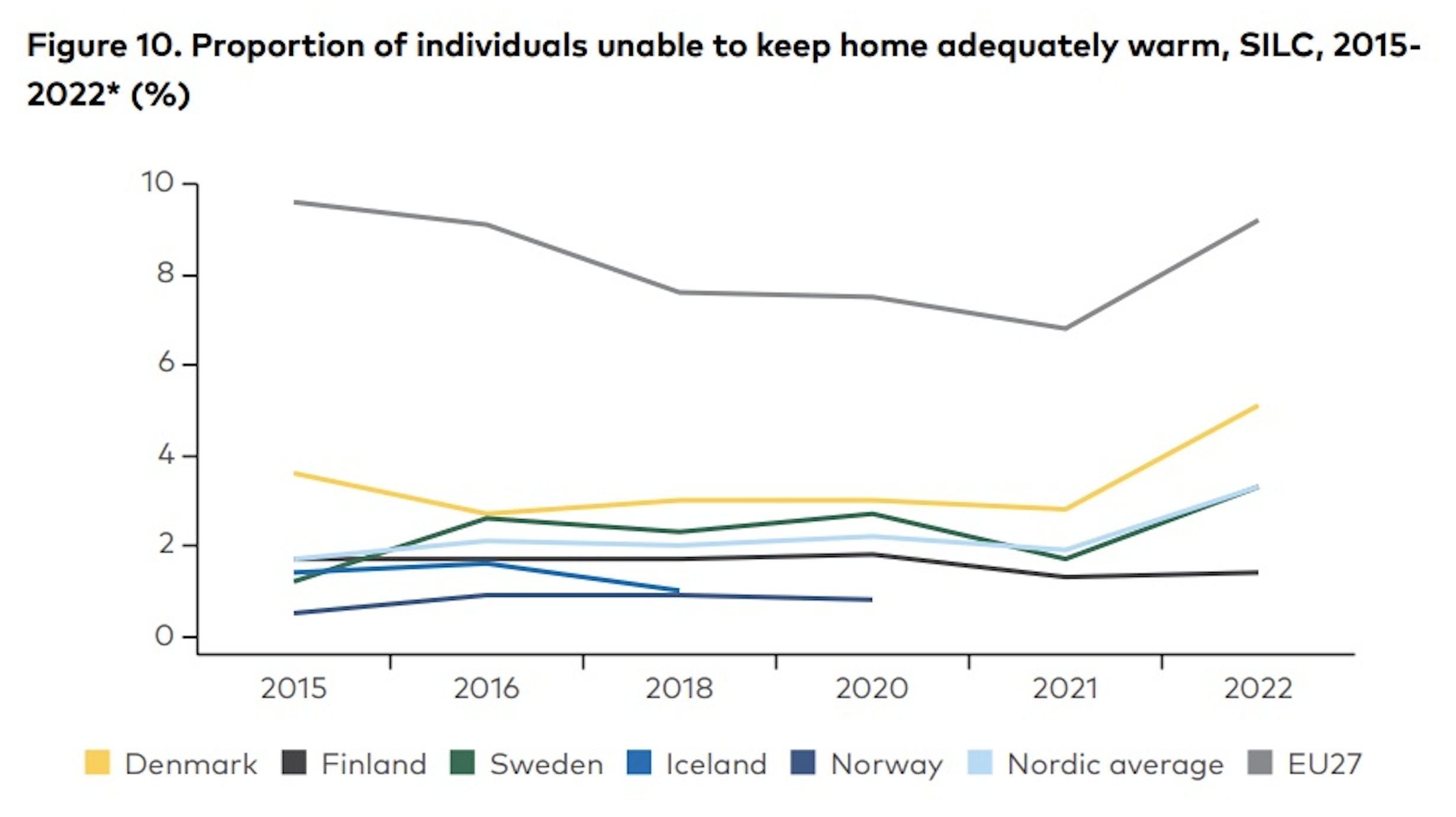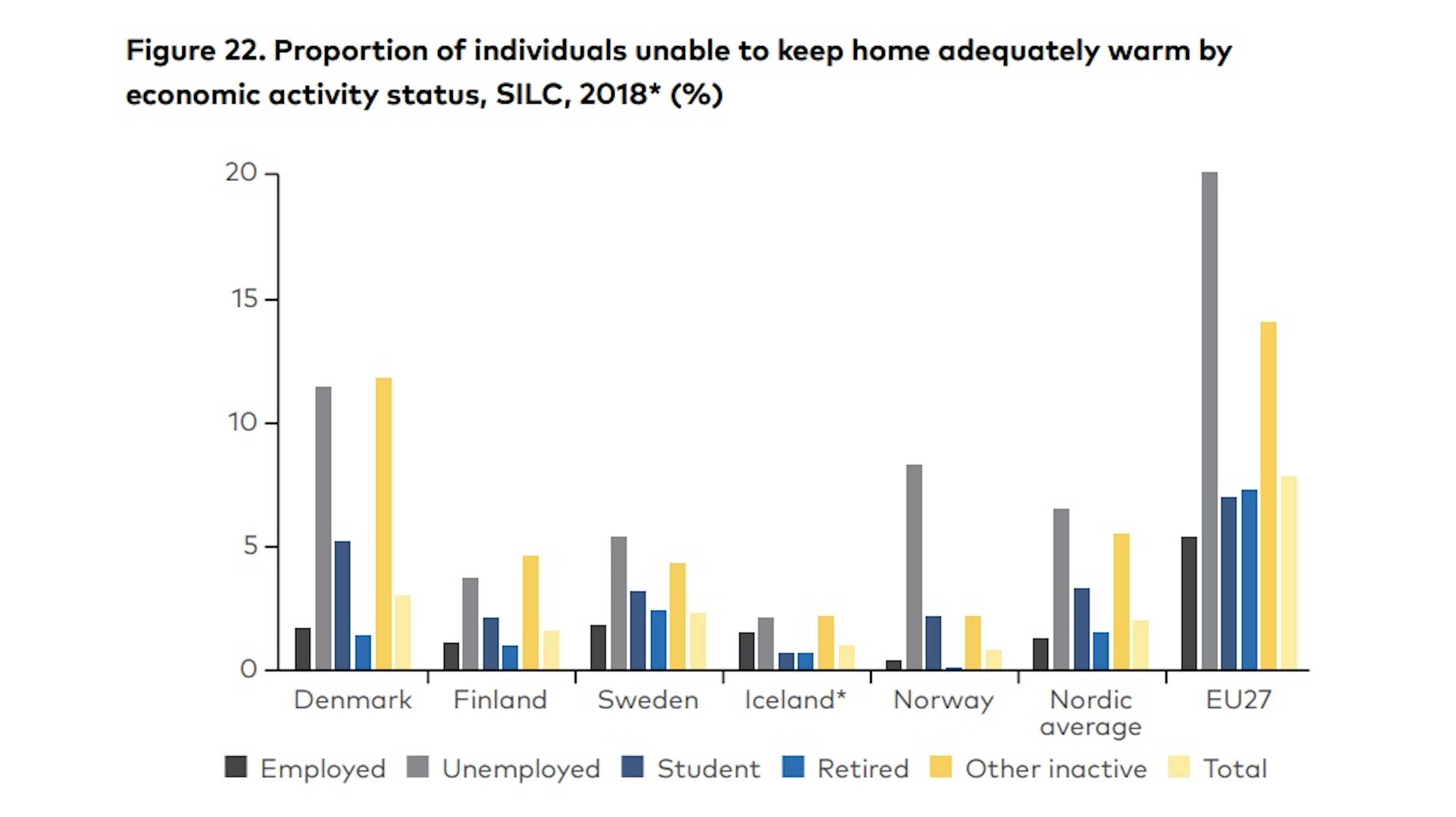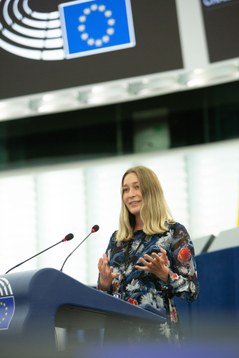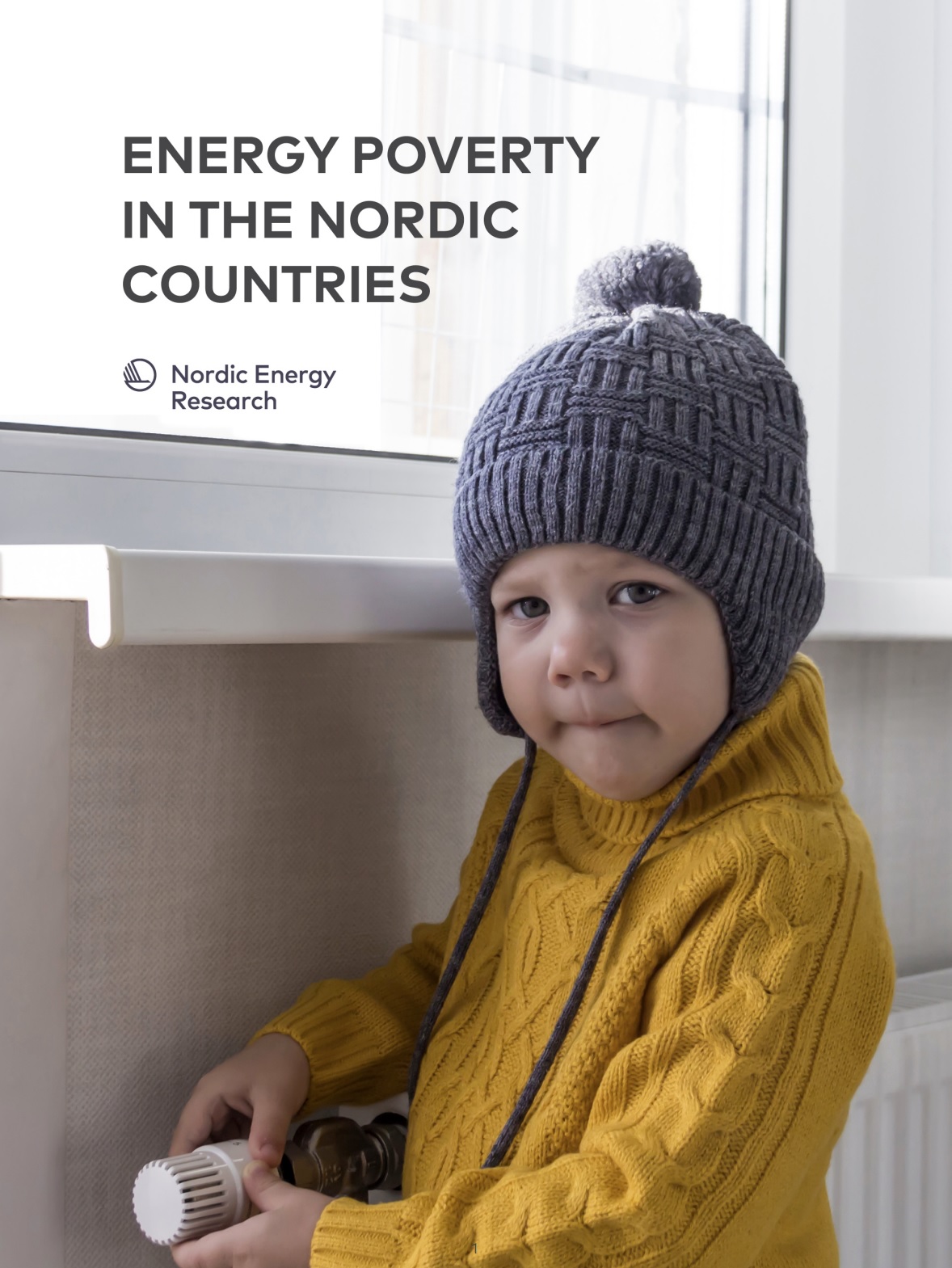EU and Nordics cooperate on energy poverty
New EU rules oblige the Nordic countries to ensure that energy crises do not lead to increased poverty. A new report recommends Nordic cooperation on the issue and a Danish MEP calls energy poverty “unsustainable”.
When the next energy crisis hits, the Nordic region should be better prepared to help vulnerable citizens so that nobody is cold in their own homes or ends up with severe economic challenges due to dramatic energy price rises.
These are the consequences of the EU’s energy rules, and the Nordic countries have a lot of catching up to do to meet these new demands, according to the new Nordic report “Energy poverty in the Nordic countries”.
“Energy poverty is a global challenge that the Nordics so far have not addressed properly,” the report concludes.

Source: The report"Energy poverty in the Nordic countries"
But this is about to change. A new EU directive on energy efficiency obliges the countries to introduce energy-saving measures in houses. The directive also obliges the member states to introduce systems to secure economic support for people facing energy poverty.
It is a fact that energy efficiency measures benefit those who can afford to invest in solutions that for instance reduce energy use in houses, and as a result, reduce energy bills.
People with less money do not have the same access to energy-saving technology and their expenses increase while the wealth gap widens.
Now, the new EU directive obliges member states to limit that gap. Countries must introduce indicators that make sure energy-poor citizens can be identified, and some of the savings made through energy efficiency measures must be returned to people living in energy poverty – for instance during an energy crisis.
Money to the wrong people
These indicators will help ensure that support is given to those who need it the most, which was not always the case during the latest energy crisis in 2022, according to the report ”Energy poverty in the Nordic countries”, which was financed by the Nordic Council of Ministers and produced by Nordic Energy Research.
It is based on a detailed analysis of how the Nordic countries attempted to mitigate the consequences for the most vulnerable citizens when the Russian invasion of Ukraine triggered an energy crisis and dramatic price increases – including for the heating of homes.

Source: The report"Energy poverty in the Nordic countries"
In Denmark, for instance, politicians decided to pay a so-called “heating cheque” to economically vulnerable citizens – a benefit to help them pay the extraordinarily high heating bill that came as a consequence of the war. However, the data used to identify the recipients of the heating cheque was not up-to-date, which meant some non-vulnerable people also benefited.
A need for a definition
The report also concludes that Denmark has not evaluated the support measures that were introduced, so it is not clear whether or how they helped the vulnerable groups of people during the energy crisis. The report recommends countries to define energy poverty in a Nordic context clearly.
“Consequently, it is crucial to identify the purpose of a definition of energy poverty and how it should align with other vulnerabilities to guide appropriate subsidy schemes and communication strategies,” the report says.
It also recommends that each of the Nordic countries make decisions that are relevant to them, because of differences in the countries’ support systems. But the report also says the Nordics should collaborate on creating a set of Nordic indicators to identify citizens living in energy poverty.
The Nordic countries’ welfare systems are different from the rest of the EU, and EU indicators are therefore not always optimal, the report concludes.
A Nordic vision and the EU agenda
Securing cheap energy and preventing energy poverty is necessary if the Nordic region is to realise its vision to become the world’s most sustainable region, the report says.
“In the Nordics, it is important to address and reduce energy poverty to make the green transition more inclusive and socially sustainable. This increases public acceptance and support for the necessary policy changes to manage the green transition.”
Energy poverty is also on the agenda ahead of the European elections. Danish MEP Kira Marie Peter-Hansen is running again for a seat in the European Parliament. She wants to work to reduce the number of energy-poor people in the EU, now at 11 per cent. One of the solutions is energy efficiency measures, she argues.

“It is unsustainable that so many people are affected by energy poverty and that is why energy renovation of the EU housing stock is crucial. We use millions every month on wasted energy because seven in ten buildings in Europe are not energy efficient,” she says.
Peter-Hansen is a member of the Danish Socialist People’s Party and deputy chair of the Greens/EFA group in the European Parliament. She believes energy efficiency is at the core of EU energy policies.
“The cheapest, greenest and most secure energy is the one that we don’t use. Our planet and our climate will not tolerate our continuing increasing demands.”
- Energy crisis
-
Danish MEP Kira Marie Peter-Hansen (SF) wants to do something about the fact that 11 per cent of the EU population suffer from energy poverty. Photo: William Vest-Lillesoe.
- Energy poverty in the Nordic countries
-
- Report published in March 2024.
- Written by Nordic Energy Research, the secretariat for Nordic Electricity Markets Group (EMG) which is a working group under the Nordic Council of Ministers.
- Financed by the Nordic Council of Ministers.

 Follow us on Facebook
Follow us on Facebook
